By Tamaraebiju Jide
Nigeria is a country enriched with diverse delicacies that would appeal to your taste buds and satisfy your hunger. Any average Nigerian that you know does not joke with their meals. A popular adage says that the best way to a man’s heart is through his stomach. These meals range from Jollof Rice, Pounded Yam, Akpu, Efo riro, Egusi, etc.
However, there are several other delicacies that are underrated and are also deserving of being in the spotlight just like Jollof Rice, Pounded Yam and the likes. Here’s a list of seven delicacies that Nigerians should stop sleeping on:

ABACHA: This tops the list of the underrated delicacies in Nigeria. Abacha, also known as African salad, is a popular Nigerian dish that originates from the Igbos of the southeastern part of Nigeria. It is made from dried, shredded cassava that is soaked in water and mixed with various ingredients to create a flavourful salad-like meal. It is typically eaten as a snack or light meal, but can also be a stand-alone dish. Abacha has an irresistible taste and can be very filling. Do yourself a favour by adding it to your food menu.
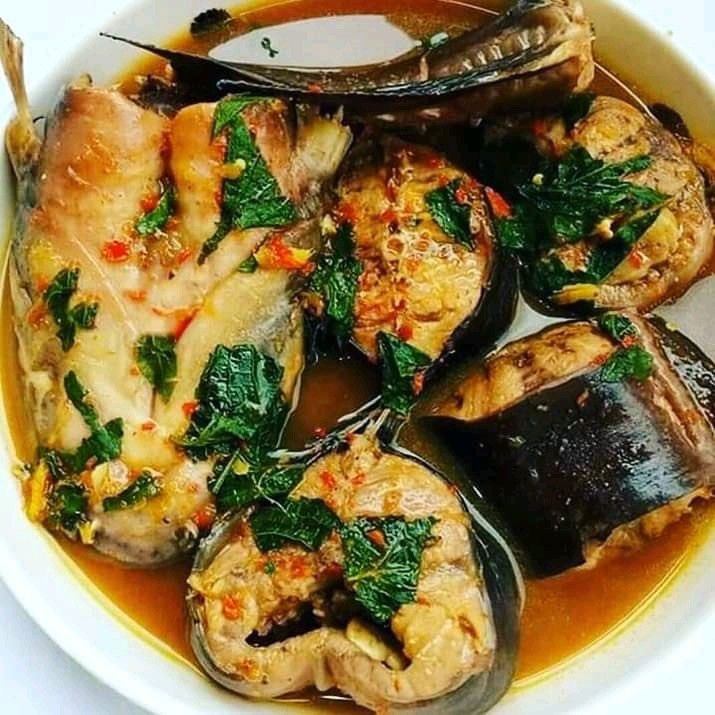
CATFISH PEPPER SOUP: also known as “point and kill” in Nigeria, is a popular spicy fish soup. Fresh catfish is the most important ingredient of the soup. Apart from its spiciness and tastiness, it is a soup that can help soothe colds and flu. It is usually served hot and can be accompanied by side dishes such as yam or plantain. If you like the soft life, Catfish Peppersoup should be on your food menu.
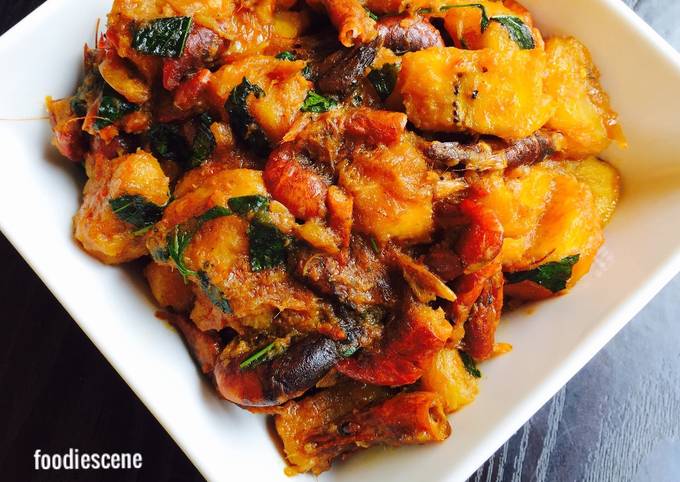
PLANTAIN PORRIDGE: is a delicious and nutritious dish popular in various West African cuisines, including Nigeria. It is typically made with ripe plantains, which are cooked and blended into a smooth, creamy consistency. If you are one with a sweet tooth, Plantain Porridge has a sweet taste that would really appeal to your taste buds. Give it a try today.
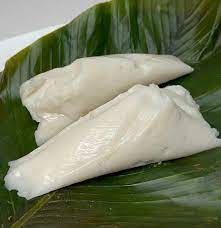
SOLID YAM (EKO): You cannot love Boiled Yam and dislike Eko. It is a traditional Nigerian dish made from fermented or cooked yam that is pounded into a smooth, thick consistency. Eko, rich in carbohydrates, provides energy, and it is often paired with protein-rich soups, making it a balanced meal. It is commonly enjoyed for breakfast or as a side dish during lunch or dinner in many Nigerian households and is often enjoyed with various soups or stews.
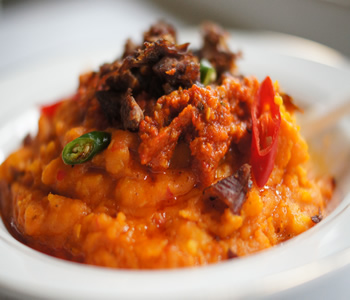
WATER YAM POTTAGE: also known as “Ikokore,” is a delicious and comforting Nigerian dish made with yam, palm oil, and various vegetables. It is a popular breakfast or lunch meal, especially in the southwestern part of Nigeria. Yam pottage is best enjoyed with fried fish, meat, or eggs. It is a filling and nutritious dish that provides carbohydrates, vitamins, and minerals.
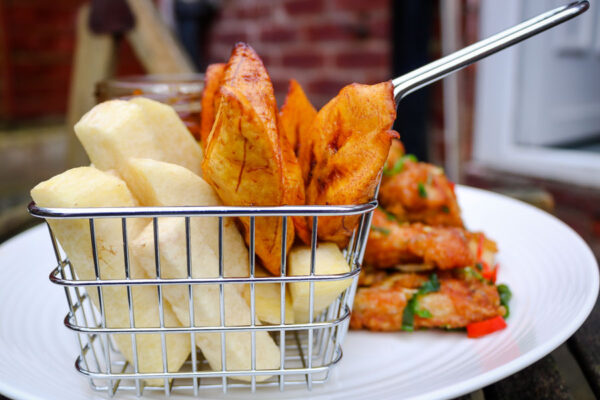
FRIED YAM WITH FISH SAUCE: is a popular Nigerian dish that combines crispy fried yam slices with a flavourful fish sauce, often made from catfish or other types of fish. Serve the fried yam hot, accompanied by the fish sauce. This dish is often enjoyed as a main meal or a hearty snack, perfect for any time of the day. The crispy yam pairs beautifully with the spicy, flavourful fish sauce, creating a delightful combination.

WATER YAM FRITTERS: commonly known as “Ojojo,” is the seventh and final dish on this list. It is a delicious Nigerian snack made from grated water yam mixed with spices and then fried until golden brown. Ojojo can be served as a snack or appetizer. It can be enjoyed on its own or with a dipping sauce. Ojojo is crispy on the outside and soft on the inside. It is also recommended for those on diets and wouldn’t mind an healthy snack to much on.
If you are familiar with any of these seven dishes, you will attest to its deliciousness and also if you intend to satisfy your taste buds, try these Nigerian dishes out. Nigeria’s dishes are enriched with flavours you won’t find anywhere else. Don’t limit yourself to the regular Jollof Rice and Pounded Yam, and instead explore other amazing dishes beginning with the above.
This article was written by Tamaraebiju Jide, a student at Elizade University.












